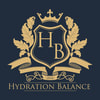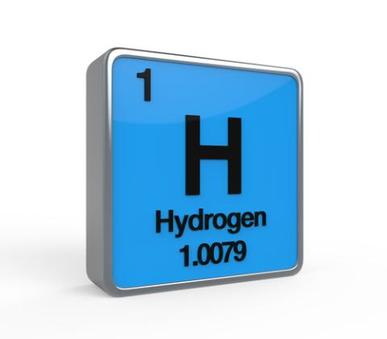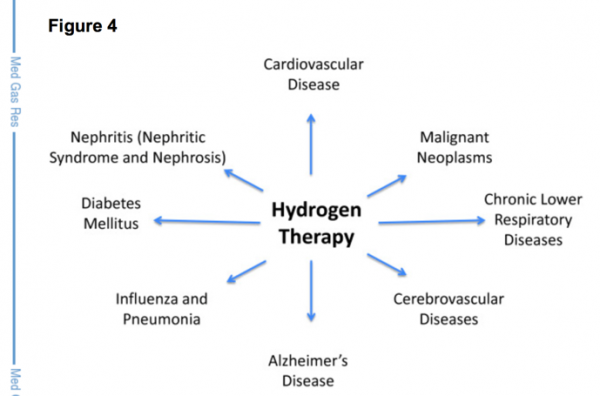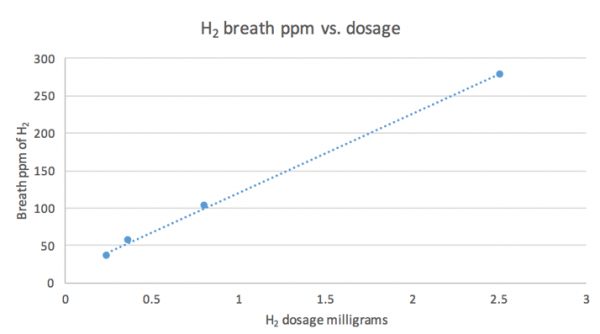What is Molecular Hydrogen?Although the research is early, the 1000+ scientific articles suggest that H2 has therapeutic potential in over 170 different human and animal disease models, and essentially every organ of the human body.
|
|
Molecular hydrogen (i.e. H2 gas) is gaining significant attention from academic researchers, medical doctors, and physicians around the world for its recently reported therapeutic potential [1]. One of the earliest publications on hydrogen as a medical gas was in 1975, by Dole and colleagues from Baylor University and Texas A&M [2]. They reported in the journal Science that hyperbaric (8 atm) hydrogen therapy was effective at reducing melanoma tumors in mice. However, the interest in hydrogen therapy only recently began after 2007, when it was demonstrated that administration of hydrogen gas via inhalation (at levels below the flammability limit of 4.6%) or ingestion of an aqueous-solution containing dissolved hydrogen, could also exert therapeutic biological effects [3]. These findings suggest hydrogen has immediate medical and clinical applications [4]. |
HYDROGEN AND IMMEDIATE MEDICAL APPLICATIONS
Hydrogen as a medical gas is also growing because it has immediate medical applications to help with many of the current health crises [65, 66]. Dixon and colleagues of Loma-Linda University reported that hydrogen has potential to help with the top 8/10 disease-causing fatalities as listed by the Centers of Disease Control [67]. Dr. Banks,from the VA/U of Washington, reported that ingestion of hydrogen-rich water was protective against neurodegenerative changes induced by traumatic brain injury in mice [68]. Their results show that hydrogen administration reduced brain edema, blocked pathological tau expression, and maintained ATP levels. This and other studies have profound effects for events where brain injury (e.g. concussion, chronic traumatic encephalopathy, etc.) is a common occurrence [69]. Although many people report dramatic effects of hydrogen therapy, from rapid pain and inflammation relief to normalization of glucose and cholesterol levels, other people may not notice any immediate or observable benefits. Hydrogen is not considered a powerful drug, and as mentioned only helps bring the cell/organ back to homeostasis without causing major perturbations. Perhaps some of the reported dramatic effects can be attributed to the placebo effect or other things, although some researchers have noted that some people are more sensitive to hydrogen and experience greater effects. More human studies are needed to answer these questions.
|
DRINKING DISSOLVED HYDROGEN
The concentration/solubility of hydrogen in water at standard ambient temperature and pressure (SATP) is 0.8 mM or 1.6 ppm (1.6 mg/L). For reference, conventional water (e.g. tap, filtered, bottled, etc.) contains less than 0.0000002 ppm of H2, which is well below the therapeutic level (See Q&A 7-8). The concentration of 1.6 ppm is easily achieved by many methods, such as simply bubbling hydrogen gas into water. Because of molecular hydrogen’s low molar mass (i.e. 2.02 g/mol H2 vs. 176.12 g/mol vitamin C), there are more hydrogen molecules in a 1.6-mg dose of H2 than there are vitamin C molecules in a 100-mg dose of pure vitamin C (i.e. 1.6 mg H2 has 0.8 millimoles of H2 vs. 100 mg vitamin C has 0.57 millimoles of vitamin C).
The half-life of hydrogen-rich water is shorter than other gaseous drinks (e.g. carbonated or oxygenated water), but therapeutic levels can remain for a sufficiently long enough time for easy consumption. Ingestion of hydrogen-rich water results in a peak rise in plasma and breath concentration in 5-15 min in a dose-dependent manner (see figure). The rise in breath hydrogen is an indication that hydrogen diffuses through the submucosa and enters systemic circulation where it is expelled out the lungs. This increase in blood and breath concentration returns to baseline in 45-90 min depending on the ingested dosage. |
Content on this page is from: http://www.molecularhydrogeninstitute.com





